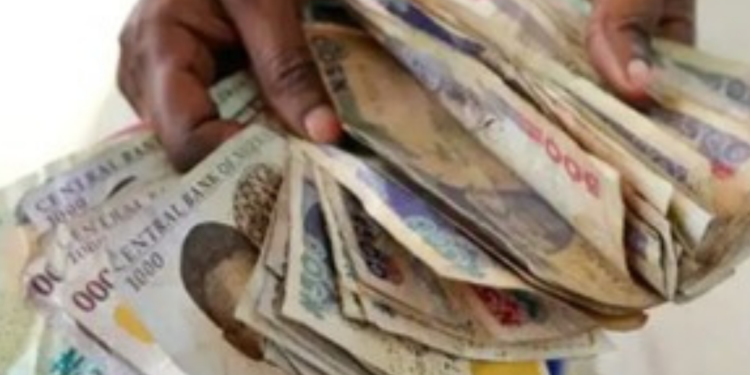In a surprising revelation, Kingsley Obiora, a former Deputy Governor of the Central Bank of Nigeria (CBN), testified that the CBN board never recommended the 2022 Naira redesign policy to then-President Muhammadu Buhari. This was disclosed during his testimony as the fifth prosecution witness in the ongoing trial of former CBN Governor Godwin Emefiele.
The trial involves a six-count charge, including accusations of unlawful printing of new naira notes. Obiora provided his testimony via audio-visual means from abroad, detailing internal discussions and the decision-making process leading up to the controversial naira redesign.
According to Obiora, the first time the CBN board learnt about the naira redesign was during a meeting on December 15, 2022. He stated, “To the best of my recollection, the first day this policy was discussed at the board was mid-December 2022.
The Governor invited the Deputy Governor of Operations and the Director of Currency Operations to present the same memo that had been seen by the Committee of Governors (COG) in October.” He emphasized that at no point did the board recommend the naira redesign to President Buhari, indicating that the decision came directly from Emefiele with presidential approval already secured.
Obiora recounted that Emefiele first mentioned the redesign policy to the four deputy governors at an event in Lagos on October 25, 2022. The event was marking the first anniversary of Nigeria’s digital currency, the e-Naira. Obiora described how, during a break, Emefiele informed the deputy governors of the plans to redesign the naira, seeking their opinion on whether to announce the policy at the event.
Obiora advised against it, suggesting that the announcement was premature and that more time was needed to study the policy. He recalled, “My personal reaction was that the event may not be the appropriate place. We needed time to review the policy and provide comprehensive inputs.”
The following day, on October 26, 2022, during a meeting of the CBN’s Committee of Governors (COG), the Deputy Governor in charge of Operations, Ade Shonubi, was asked by Emefiele to present a memo on the naira redesign. Obiora detailed that Shonubi complied, and the policy was subsequently deliberated upon. Emefiele informed the committee that he had already obtained the President’s approval for the redesign. This approval led to a press conference where Emefiele and two other deputy governors announced the policy publicly.
When cross-examined by Emefiele’s lawyer, Olalekan Ojo (SAN), Obiora confirmed his previous roles, including serving as a technical adviser to former President Goodluck Jonathan. Ojo questioned whether the CBN board had any prior discussions or input on the naira redesign before it was presented as a finalized decision. Obiora maintained that there was no prior recommendation from the board, reiterating that the approval was obtained directly by Emefiele from President Buhari.
Obiora also provided insight into the procedural norms at the CBN, explaining how certain presidential requests, particularly those involving disbursement of funds to countries like Chad and the Niger Republic, were often implemented by the governor before the board was informed. He noted, “Such requests would typically come to the governor, who would inform the committee (COG), and it would be executed before the board was made aware.”
During his testimony, Obiora disclosed that when the Economic and Financial Crimes Commission (EFCC) invited him for questioning, he was not presented with any official documents from President Buhari or other presidency officials complaining about the naira redesign policy or its implementation. Despite the absence of formal objections from the presidency, the naira redesign sparked widespread debate and led to significant economic disruptions, including cash shortages that affected businesses and households across Nigeria.
Obiora acknowledged that one of the primary objectives behind the naira redesign was to curb currency trafficking and hoarding, aligning with Emefiele’s public statements during the policy’s rollout. However, the policy’s execution and timing, especially without prior board recommendation or a comprehensive review, have raised questions about the decision-making process within the apex bank.
The hearing concluded with the EFCC’s lead prosecutor, Rotimi Oyedepo (SAN), requesting an adjournment. Emefiele’s lawyer, Ojo, did not oppose the request but asked the court to vacate the previously scheduled date of November 29 to allow him to attend his daughter’s wedding and address health concerns. Justice Maryanne Anenih granted the request, adjourning the case until December 4 for the continuation of the trial.


































